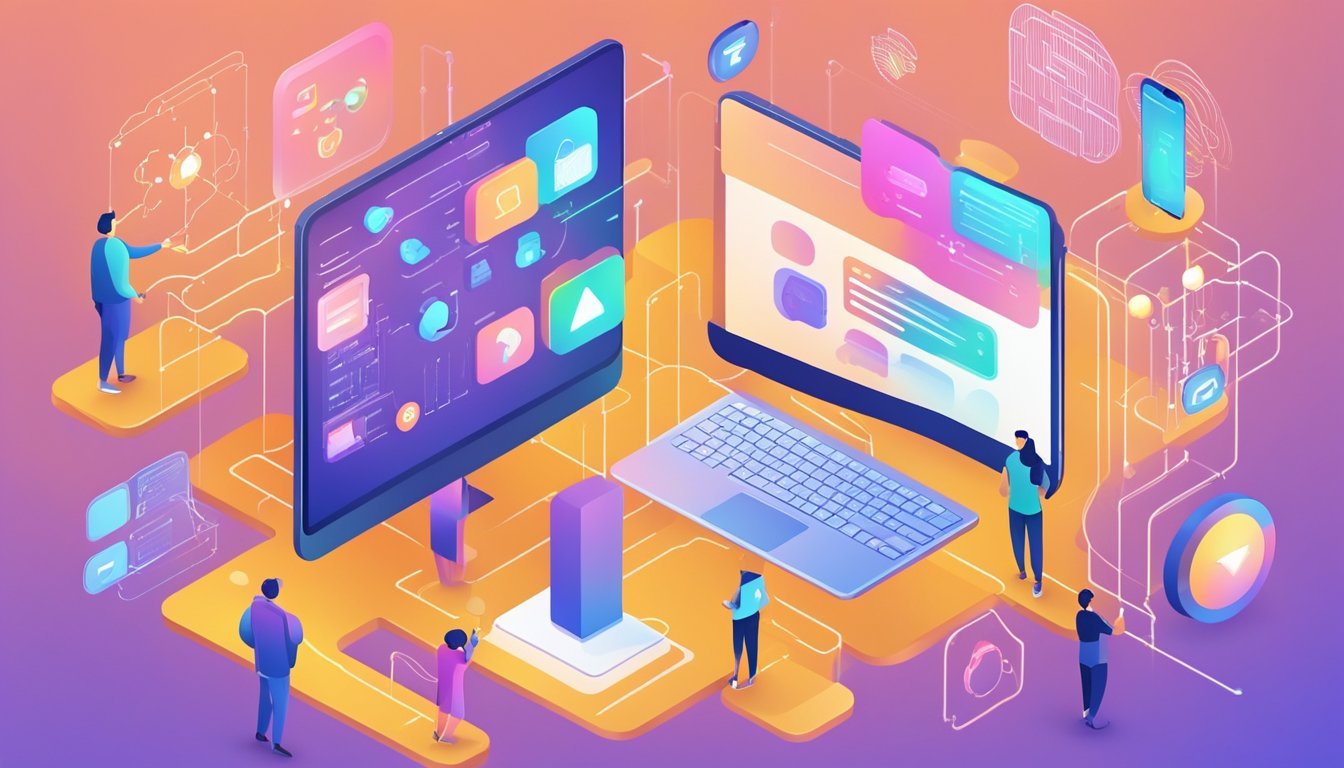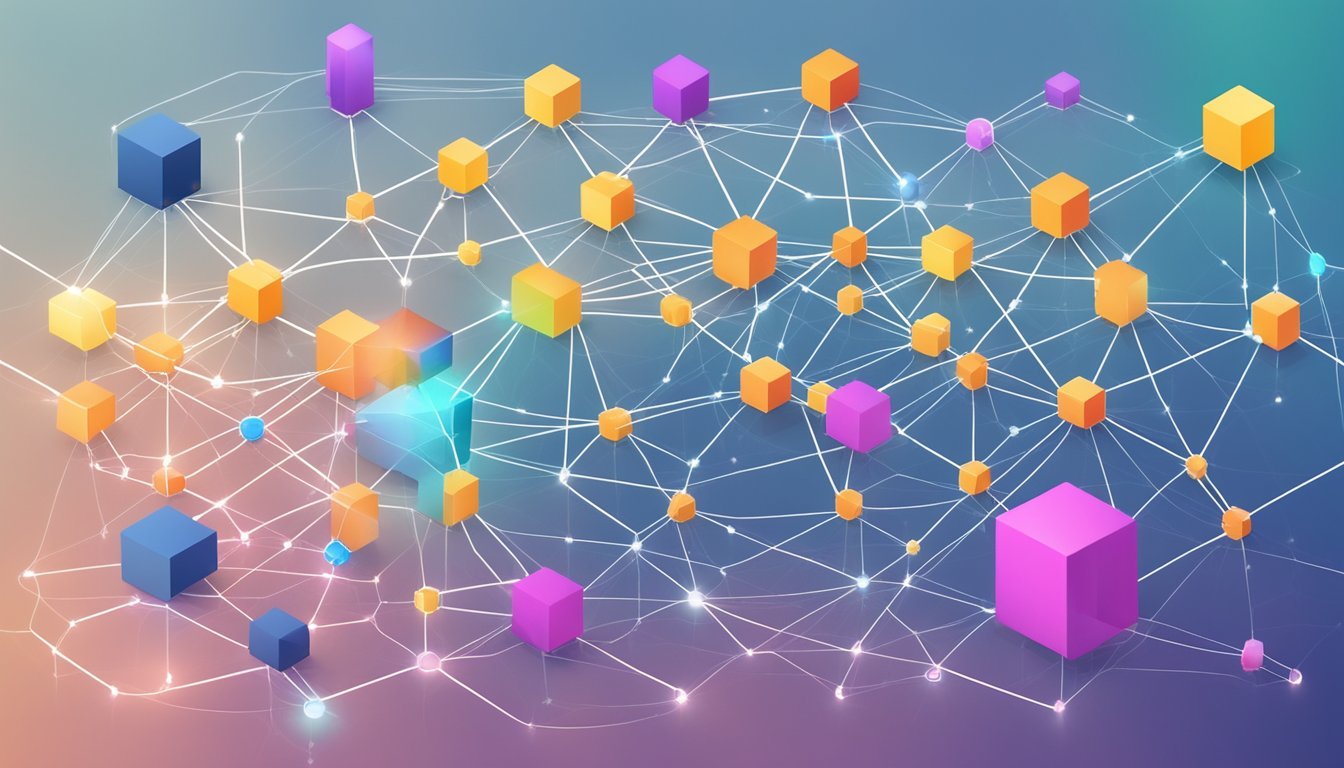AI and the Future of Digital Communication: A Comprehensive Overview
Artificial intelligence (AI) is fundamentally transforming the way we experience online interactions. From customer service chatbots to personalized content recommendation systems, technology has evolved to facilitate and enhance digital communications. AI-driven tools are now capable of understanding and processing human language with remarkable accuracy, enabling them to respond to queries, offer support, and even anticipate user needs.
The integration of AI into various online platforms has not only streamlined interactions but also introduced a new level of personalization that was once unattainable. This shift is evident as businesses increasingly deploy AI to interact with consumers, utilizing vast amounts of data to tailor conversations and experiences to individual preferences. As a result, the digital age is witnessing a significant shift in the expectations and dynamics of user engagement.
By navigating the path set forth by AI, society stands at the cusp of a revolution in digital communication. As technology continues to advance, the future of online interactions seems to hinge on the ever-growing capabilities of artificial intelligence, reshaping our understanding of connectivity in the digital domain.
Historical Evolution of AI in Online Interactions
Artificial Intelligence (AI) has come a long way since its inception, especially in shaping how we interact online. From the algorithms that dictate the operations of simple chatbots to the sophisticated systems that personalize user experiences, AI's journey has been significant.
The Birth of AI and Its Early Influence on the Web
In the initial stages of the internet, the influence of AI was subtle yet foundational. Early forms of AI included simple algorithms used for search functions and data sorting. Gradually, these grew more complex, allowing for the personalization of content based on user's browsing history. As data science evolved, machines became capable of handling and learning from vast amounts of data, which enriched the user experience and provided rudimentary automations in customer service through chatbots.
Milestones in AI Development and Online Adaptation
The adaptation of AI in online spaces accelerated with several key milestones:
Introduction of AI in Search Engines: AI began to alter the fabric of online interactions by drastically improving the accuracy and relevance of search engine results.
Smart Personal Assistants: The development of AI-powered personal assistants revolutionized user engagement by introducing voice-activated commands and personalized suggestions based on user preferences.
Social Media Feeds: AI's capability to analyze large datasets enabled social media platforms to curate personalized feeds, influencing user interactions and content consumption patterns.
Generative AI: This advanced form of AI has been disrupting the way content is generated and consumed online, offering unprecedented levels of engagement through personalized and dynamic content creation.
Each milestone signifies the growing integration of AI in our daily online interactions, illustrating how algorithms and data science have become the backbone of the digital experience.
Technological Foundations of AI
The rise of AI is underpinned by complex and robust technological advancements. These are centered on sophisticated machine learning techniques, the intricacy of natural language processing, the developments in computer vision, and the vital function of underlying algorithms.
Understanding Machine Learning
Machine learning (ML) constitutes the core of AI, enabling software to improve its performance over time without explicit programming. By leveraging data processing, ML algorithms can learn from data patterns and make predictions or decisions. They are at the heart of applications ranging from recommendation systems to autonomous vehicles.
Significance of Natural Language Processing
Natural Language Processing (NLP) empowers computers to understand, interpret, and generate human language. This branch of AI is critical for developing chatbots and translation software, making it essential for enhancing online communication. Advancements in NLP have been pivotal in enabling machines to engage in more meaningful interactions with users.
Advancements in Computer Vision
Computer vision technology allows computers to derive meaningful information from visual inputs such as images and videos, paralleling human visual understanding. These advancements have led to the creation of systems that can recognize faces, interpret content in media, and even assist in medical diagnoses, greatly enhancing interactive online experiences.
The Role of Algorithms in AI
Algorithms are the bedrock upon which AI systems are built, dictating the set of rules for data processing and decision-making. These intricate formulas are essential for powering search engines, social media feeds, and financial models, representing the logic that drives AI functionalities across various platforms and industries.
AI Applications in Online Services
Artificial Intelligence (AI) is transforming online services with applications ranging from customer support to personalized content. These advancements are enhancing user interactions, streamlining service delivery, and improving decision-making processes.
Chatbots and Virtual Assistants
Chatbots and virtual assistants utilize AI to offer efficient, round-the-clock customer support. They handle inquiries, provide assistance, and even resolve complex issues. For instance, Wing AI is noted for aiding users in navigating online dating complexities.
Personalized User Experience and Content
AI delivers a personalized user experience by analyzing user data to tailor content. From recommending movies to curating shopping experiences, AI predicts user preferences. This personalization ensures users spend less time searching and more time enjoying the content that resonates with them.
AI in E-commerce and Customer Service
In e-commerce, AI refines the customer service experience by offering personalized shopping recommendations and swift problem resolution. Additionally, AI-powered tools track customer behavior, enabling tailored promotions and strategically timed discounts.
Automation of Data-Driven Decision Making
Automation of decision-making processes relies on AI to interpret vast datasets and make informed business choices. AI identifies trends and patterns, facilitating data-driven decisions that propel businesses forward. This automation is pivotal in sectors ranging from finance to healthcare.
Emerging Technologies and AI Integration
Emerging technologies, particularly those in the realms of augmented reality (AR) and artificial intelligence (AI), are revolutionizing the ways in which interactions are designed, personalized, and delivered across numerous platforms and industries.
AR and AI in Interaction Design
The convergence of AR and AI is transforming interaction design by providing more intuitive and immersive experiences. With AR applications, users can interact with virtual elements superimposed on their real-world environment through their device's camera. When this is paired with AI's ability to analyze data and learn from user interactions, apps become more contextually aware and reactive, ultimately enhancing user engagement and satisfaction.
Generative AI and Creativity
Generative AI is at the forefront of driving creative solutions in numerous industries. By harnessing advanced machine learning algorithms, generative AI can produce novel content, from artwork to music, depending on the inputs and patterns it has learned. This capability is not just transforming creative professions but is also feeding into the development of dynamic and responsive apps that can generate personalized content in real-time for users.
Smart Devices and Healthcare Innovations
In the healthcare sector, AI integration in smart devices is instrumental in predicting patient outcomes and offering tailored health recommendations. Smartphones and wearable tech equipped with sensors provide real-time health monitoring, alert systems, and healthcare applications that empower both patients and providers with unprecedented access to medical data and insights. These innovations signify a profound shift towards proactive and preventive healthcare management.
AI in Education and Skill Development
Recent advancements in artificial intelligence (AI) are redefining the methods and impacts of education and skill development. Specifically, machine learning—the subset of AI that enables systems to learn from and interpret data—is altering how educational content is delivered and personalized.
The Transformation of Learning Platforms
Learning platforms powered by AI are implementing machine learning algorithms to create dynamic environments that adapt to each learner's pace and style. For instance, these platforms can analyze a student's previous interactions and performance to suggest educational paths tailored to their individual learning goals and needs. Additionally, the integration of AI into online education platforms extends beyond content delivery to include automated grading, feedback systems, and the identification of knowledge gaps. This allows educators to focus on fostering deeper understanding rather than administrative tasks.
AI's Role in Specialized Education Fields
In specialized fields such as data science and job training applications, AI's influence is equally significant. AI-driven simulations and interactive modules serve as critical tools in sectors that require hands-on experience. These technologies enable learners to engage in practical scenarios that are otherwise difficult to replicate in traditional classroom settings. Machine learning models also enable the correlation of educational content with real-world data, ensuring that the skills taught are directly applicable to the job market and current industry practices.
AI's application in education and skill development showcases a future where individual learning experiences are optimized and traditional barriers to educational access are reduced.
Economic and Social Impact of AI
Artificial intelligence is reshaping the landscape of work and social interaction, influencing everything from job markets to the very essence of human decision-making. The economic and social spheres are experiencing profound changes as AI improves efficiency and redefines roles traditionally held by humans.
AI's Contribution to Job Creation and Automation
Artificial intelligence excels in automating tasks that once required human labor, leading to concerns about job displacement. However, it also creates new industries and job opportunities that demand advanced skills in AI management and development. A report by The Economist suggests a substantial impact on social norms and everyday interactions, hinting at a deep economic interplay that AI continues to evolve.
Job Creation: AI has been instrumental in generating jobs in tech sectors, data analysis, and AI ethics, which were unheard of just a few decades ago.
Automation: With AI's ability to automate routine and repetitive tasks, sectors such as manufacturing and customer service see an increase in productivity and cost efficiency.
AI and the Redefinition of Human Agency
The infusion of AI into daily life is altering the concept of human agency, prompting a reevaluation of how choices are made and actions are taken. The power of AI lies in its capacity to analyze vast amounts of data and guide decision-making processes, which may outpace human cognitive abilities in certain domains.
Human Decision-Making: The reliance on AI for informed decisions can enhance economic growth but also raises questions about the limits of human autonomy.
Social Interactions: AI-driven platforms are shaping the way people communicate and relate, significantly affecting personal and professional interactions.
As AI continues to advance, its economic and social impacts are likely to deepen, redefining job landscapes and challenging the traditional notion of human agency.
Ethical Considerations and Regulation
The implementation of AI in online interactions necessitates stringent ethical considerations and the formulation of robust regulatory measures to safeguard both individual privacy and data security. This ensures responsible usage of AI technologies.
The Debate on Privacy and Data Security
AI's capability to analyze vast quantities of data can significantly enhance user experiences. However, this raises privacy issues as these systems often collect and store personal information. The debate centers around the balance between leveraging data for innovation and protecting individual privacy rights. For instance, AI-driven recommendations require access to personal browsing history, which necessitates transparent data handling practices to maintain trust.
Regulations and Standards for Responsible AI Usage
To navigate the complex landscape of AI, regulations and standards are essential. They enforce ethical principles such as fairness, accountability, and transparency while guiding the responsible use of AI. An example is the European Union’s General Data Protection Regulation (GDPR), which sets a precedent for privacy standards and the ethical use of AI, compelling companies to ensure data protection by design. Similarly, organizations are encouraged to adhere to ethical AI frameworks that reflect these standards in their operations.
Future Perspectives and Challenges
The landscape of online interactions is continuously redefined by the dynamic evolution of AI technology, heralding unprecedented potential while confronting us with significant challenges. These concerns not only pivot on the trajectory of AI's capability advancements but also on the sociocultural and environmental ramifications that follow.
Predicting the Trajectory of AI Advancements
AI technology is advancing at a rapid pace, with future trends suggesting greater autonomy and capabilities. The integration of AI into online interactions is expected to become more seamless, enabling real-time, personalized experiences for users. For instance, the development of Perspective Agents points to a future where AI not only understands but anticipates user needs and behaviors. However, this surge in capability necessitates robust ethical frameworks to ensure AI systems are designed and deployed responsibly.
Addressing Sociocultural Impacts and Sustainability
The advancement of AI technology must address the sociocultural impacts and sustainability measures. As AI reshapes communication, cultural nuances and social norms pose a challenge for developing universally accepted AI systems. Initiatives that foreground ethical AI are paramount to ensure that technology aligns with diverse cultural values. Sustainability also emerges as a concerned focus with calls for AI to contribute positively to environmental goals. The Harvard John A. Paulson School of Engineering and Applied Sciences emphasizes the importance of foresight in the adoption of AI technologies to minimize negative outcomes and maximize societal benefits.
Conclusion
Artificial Intelligence (AI) is not an approaching revolution; it is an unfolding reality in online interactions. Integrating AI into digital platforms has enabled more robust and tailored experiences for users. Decision making, one key area, has been significantly enhanced, as AI algorithms now can analyze vast amounts of data to make informed suggestions and automate responses.
The applicability of AI is broad, affecting industries from e-commerce to healthcare. One observes that AI tools have become indispensable for businesses striving for efficiency and a personalized customer experience. This integration has redefined how companies interact with their customers and manage their operations.
Looking ahead, AI's role is only set to grow. The challenge lies in its implementation—ensuring AI is applied responsibly and ethically. Integration of AI should be pursued with consideration to the human element; facilitating, rather than replacing, human engagement.
As AI continues to advance, it is evident that the interplay between human intelligence and artificial cognition will shape future online interactions. Yet, it is critical to maintain a balance, harnessing AI's potential without losing sight of the value of human touch in digital communication.





